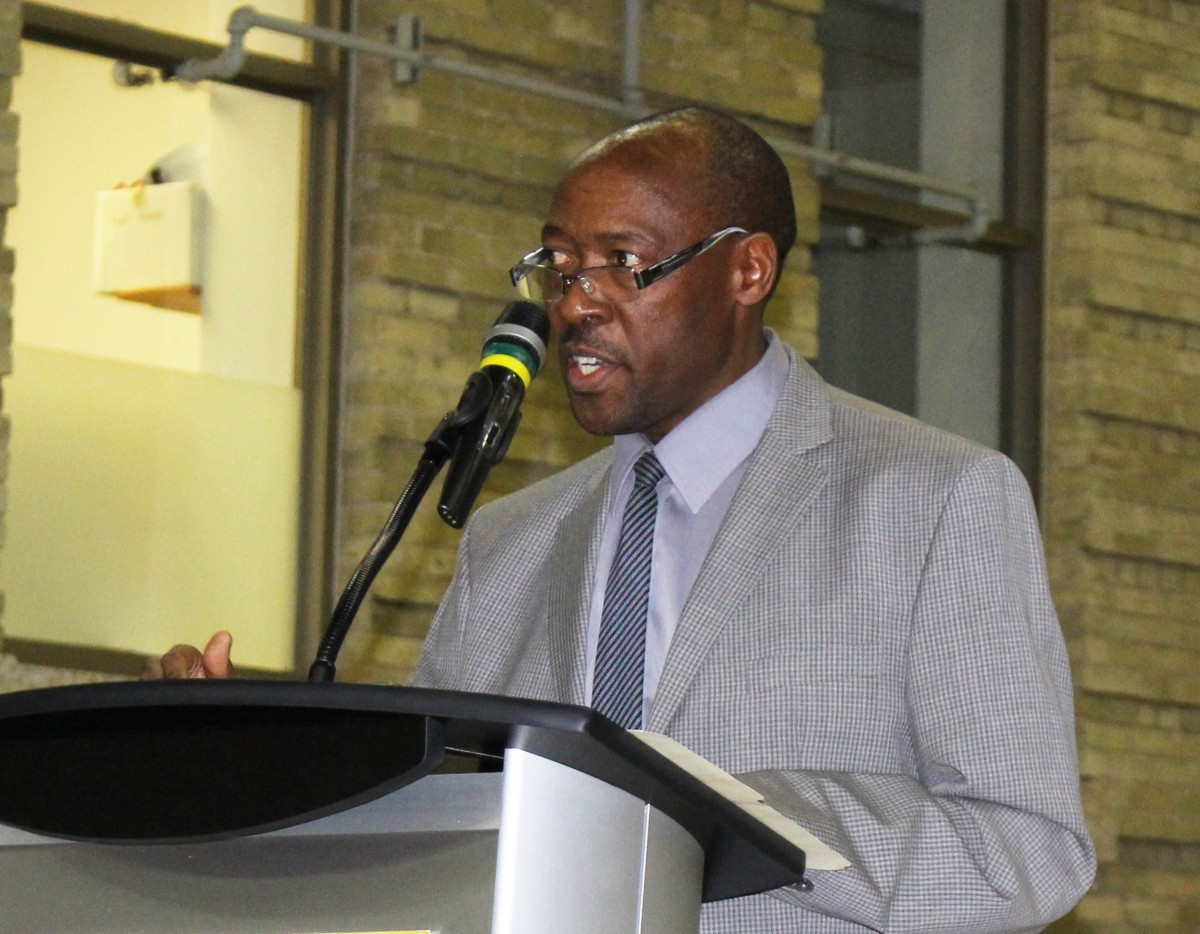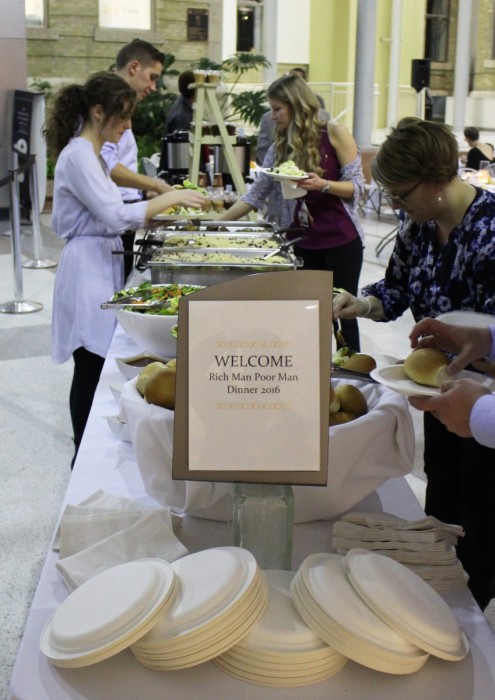
Dr. Theoneste (Theo) Semanyenzi speaks to guests at the Rich Man Poor Man Dinner about his experience as a refugee from Rwanda
Rich Man Poor Man Raises Awareness for Refugees
A quick glance at today’s headlines will tell you that the situation for refugees around the world is reaching crisis levels.
War and political unrest have displaced millions who are looking for safety, security and opportunity for themselves and their families.
This international crisis was brought home to the local level at last night’s Rich Man Poor Man dinner in the Brodie atrium.
Hosted by the Manitoba Hosted by the Manitoba Medical Students’ Association, the Rich Man Poor Man dinner raises money for local charitable organizations while also raising awareness about food security, access to housing and social accountability.
The dinner is designed for guests to experience how much of the world eats: One out of every eight guests receives a “rich man meal” consisting of three courses and wine, while the other seven at the table receive the “poor man meal”, a simple rice and bean dish without wine – a meal typically eaten by 90 per cent of the world’s population.
Proceeds from this year’s dinner will support Hospitality House Refugee Ministry, a local organization that helps refugees integrate into Canadian life.
Ruth Habte, a first year student College of Medicine student and one of the event organizers, spoke to the importance of supporting refugees.
“As health sciences students and future health care providers, we felt we had a responsibility not only to help refugees adjust to life in Canada but also to engage on the topic to improve the care we can provide in the future. We are pleased to support Hospitality House Refugee Ministry,” she said.
The two guest speakers for the evening spoke from their own personal experience about the issues facing those forced to leave their home countries.
Dr. Abdullahi Ibrahim, is a Somali born physician who has settled in Canada, and works for the overseas for the United Nations. He also has much experience with health issues in the refugee population and spoke about his work in East Timor during that country’s struggle for independence from Indonesia.
The other keynote speaker, Dr. Theoneste (Theo) Semanyenzi, is a Rwandan physician who received his medical training in China and was practicing medicine in Rwanda leading up to the 1994 genocide. Theo and his wife both lost many loved ones during the genocide and in order to survive were forced to quickly flee from Rwanda, winding up in a Kenyan refugee camp. Theoneste was quickly co-opted to serve as part of the medical staff in the camp, where he worked until he and his family arrived in Canada as government-sponsored refugees. Today he works as a Clinical Assistant in Critical Care at Health Sciences Centre.
“My experience is like a 2,000 page book and my refugee life was a long and winding road,” he said. “Sometimes I have been alone, many times I have cried. But I am lucky. I was accepted to Canada with my family. Like many refugees, my dream was peace, safety and stability. In my life as a refugee it’s ok to be angry, ok to cry, but not ok to give up hope.”







